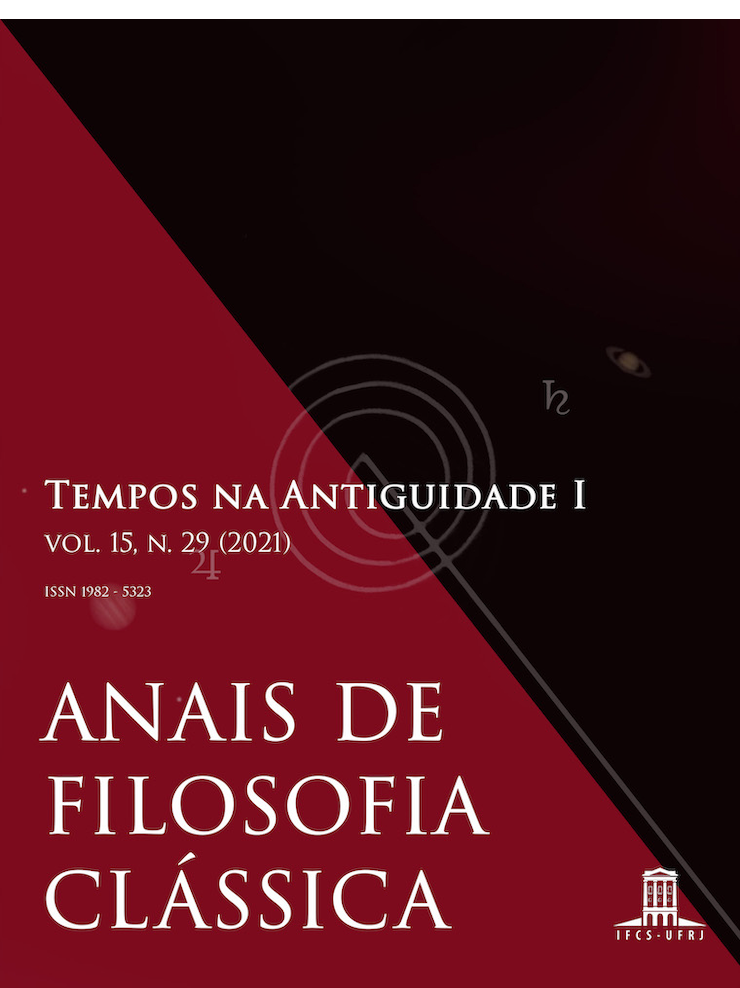Mudança e mudança em Platão
DOI:
https://doi.org/10.47661/afcl.v15i29.46241Keywords:
Exaíphnes, Change, Platonic metaphysics, Plato’s politicsAbstract
In the Parmenides dialogue, Plato treats speculatively the exaíphnes, the sudden instant, as a condition for the possibility of change between radical oppositions. However, not every change has this character, as happens with changes of political regimes narrated in the Republic. It’s interesting here to characterize the difference between these two perspectives in which we see change beeing considered by Plato. It’s important to realize how the Platonic metaphysical conception is in perfect agreement with his political conception, as, in both cases, he separates the One, the exception, from the multiple.
References
ARISTÓTELES. A Política. Lisboa: Edições Vega, 1998 (ed. Bilíngue).
COULANGES, Fustel de. A Cidade Antiga. Trad. Fernando de Aguiar. São Paulo: Martins Fontes, 2000.
PLATÃO. Parmênides. São Paulo: Loyola, 2005 (ed. Bilíngue).
_______. A República. Lisboa: Calouste Gulbenkian, 1983.
_______. O Banquete. Belém: UFPA, 2011 (ed. Bilíngue).
_______. Carta VII. São Paulo: Loyola, 2010 (ed. Bilíngue).
_______. Fédon. Belém: UFPA, 2011 (ed. Bilíngue).
_______. O Político. São Paulo: Abril, 1972.
_______. As Leis. Lisboa: Edições 70, 2017.
_______. Protágoras. São Paulo: Perspectiva, 2017 (ed. Bilíngue).
_______. Górgias. São Paulo: Perspectiva, 2014 (ed. Bilíngue).
PLATONIS OPERA.Oxford: Oxford University Press, 1987, 5 vol.
STENZEL. Platone Educatore. Bari: Laterza, 1966.
VEGETTI, Mario. Um paradigma no céu. Platão político, de Aristóteles ao século XX. São Paulo: Annablume, 2010.


